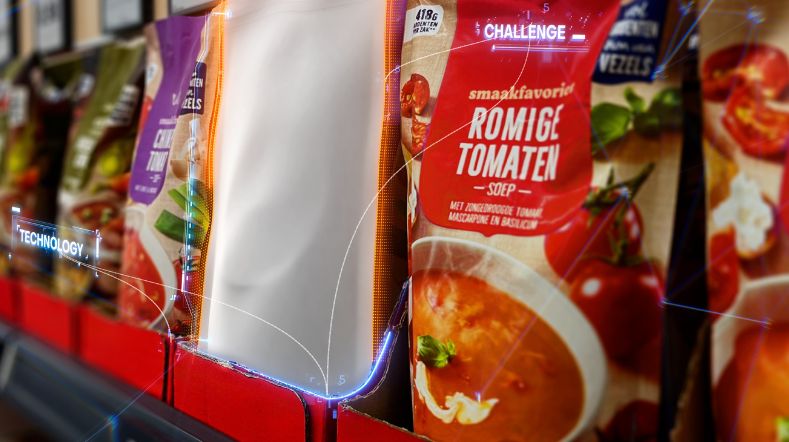EERA - Energy efficiency - Critical for the green Transition in Industry
Energy efficiency involves using less energy to produce the same output. As industrialized countries continue to ramp up their industrial activities, power consumption increases. To meet climate goals set for 2030 and 2050, there’s a pressing need to reduce industrial greenhouse gas emissions. Additionally, the EU is pushing for strategic autonomy in its industries through initiatives like the Critical Raw Materials Act and the Net Zero Industry Act.
Industries reliant on fossil fuels must accelerate their transition to greener alternatives. However, challenges such as limited solar and wind capacity, network constraints, and a lack of low-carbon fuels (like hydrogen and biogenic sources) hinder greenhouse gas reduction efforts. Prioritizing energy efficiency is crucial for a successful green transition—it reduces future demand for renewable energy and eases grid constraints, making the transition more feasible and affordable.
The EERA working group
To help and facilitate policy makers, industries, finance, energy grid companies and research institutes to make the industry greener. The EERA working group with SINTEF, TNO, THE UU, AIT and Tecnalia, Energy efficiency in Industrial Processes aims to highlight the role and impact of Energy Efficiency in Decarbonising the European Industry.. The results of the collaboration can be found in this white paper. TNO has an important role in the project, since TNO is both coordinating the EERA JP EEIP and also one of the lead authors in this whitepaper
Read the whitepaper
The whitepaper is coordinated by the Norwegian Research institute SINTEF, with TNO, the UU, Tecnalia and AIT contributing to the writing of the whitepaper.
Maximize energy efficiency
- Challenges such as limited solar and wind capacity, network constraints, and a scarcity of low-carbon fuels (such as hydrogen and biogenic sources) pose obstacles to reducing greenhouse gas emissions. Prioritizing energy efficiency becomes pivotal for a successful transition to sustainable practices. By curbing future energy demand and alleviating grid constraints, energy efficiency makes the transition more feasible and cost-effective.
- Within energy circles, it’s often emphasized that the most sustainable energy is the energy we don’t use. Increasing energy efficiency stands out as an accessible and cost-effective decarbonization strategy across various industrial sectors. It’s a critical tool when introducing carbon-free value chains.
- Implementing energy efficiency measures is akin to picking low-hanging fruit—technologically mature, cost-effective, and swift. Moreover, it offers a clean energy pathway without the controversies associated with nature and biodiversity.
- Maximizing energy efficiency in industrial sectors yields clear benefits. It reduces energy demand, enhancing energy security. Additionally, it minimizes grid constraints, lowers renewable capacity requirements, and reduces the energy and climate footprint per unit of industrial production.
- Depending on the energy mix, energy efficiency directly curtails CO2 emissions, contributing to climate change mitigation. Ultimately, Europe’s adoption of flexible, efficient, and decarbonized energy will bolster economic competitiveness, support local economies, and fortify the workforce.
Strategies to improve energy efficiency in industrial processes:
- Utilize Recycled Feedstocks: Industries can benefit from using recycled feedstocks, which, depending on the feedstock, can significantly reduce energy demand compared to primary production.
- Develop Energy-Efficient Processes: Consider processes operating at lower temperatures and pressures or with improved catalysts. These changes can lead to substantial efficiency gains.
- Implement Waste Heat Recovery Techniques: Use methods like heat pumps and heat integration to recover and upgrade heat, thereby reducing energy consumption.
- Maximize Synergies Across Industrial Sectors: Encourage heat exchange within industrial clusters. This allows excess heat to be shared with nearby users, improving overall efficiency.
- Optimize Cooling Processes: Improve cooling processes, improving cold integration, reducing temperature lift and improving waste heat recovery from cold production to enhance energy efficiency.
- Enhance Separation and Drying Techniques: Focus on more efficient separation and drying methods.
- Adopt Efficient Mechanical Drives: Use more efficient mechanical drive to further enhance energy efficiency, e.g. by using electrical motors.
- Monitor Energy Use and Employ Digitalization: Implement monitoring systems and digital tools to make informed decisions about energy efficiency in complex industrial systems.
Opportunities & challenges
This white paper will outline the existing situation regarding energy consumption and efficiency in the industrial sector. It will address the current state of energy use and energy efficiency within the industry. Key solutions for improving energy efficiency will be presented, including various strategies and approaches to enhance efficiency. The paper also includes the barriers to implementation, examining the challenges and obstacles faced when attempting to implement energy-saving measures. Additionally, it will provide examples of successful energy efficiency practices through demonstration projects in real-world industrial settings. Finally, the white paper will offer practical recommendations for boosting energy efficiency across industrial sectors.
Get inspired
Progress in circular packaging for soups and sauces


Gas production shows a slower decline than in the past decade


Biobased plasticizers: from compliance to competitive edge


Microplastics in clothing


Early results show the potential of circular healthcare plastics



